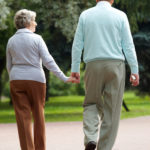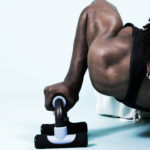
December 2013
Fitness JournalIDEA Fitness Journal - December 2013
Protein Today: Are Consumers Getting Too Much of a Good Thing? 
Consuming proteins can help people lose weight, but most people don't need more of it in their diets. 
Should You Freestyle or Prestyle?
Review the pros and cons of teaching “freestyle” and prechoreographed classes, and learn new tricks from each method.
The New Science of Counting Calories 
Recent research shows why nuts, fresh fruits and uncooked foods can be attractive choices for weight-conscious clients. 
Yoga Adjustments 
Giving safe, effective adjustments in class requires sensitivity and skill. 
Extreme Conditioning Programs: High-Risk or Vulnerable Risk Takers? 
These demanding workouts offer
benefits, but there
are safety concerns. 
Exercise and the Autism Population 
Careful preparation and specific strategies can help trainers succeed with autistic athletes. 
Science Uncovers the Perfect Playlist 
Research shows that the right mix of tunes inspires participants and is a boon
to programming. 
Undoing Childhood Obesity 
Fitness pros can take a leading role in helping U.S. children become healthier. Core Off the Floor
Take core training vertical.
Helping the Chronically Short of Breath 
Exercise can help people with emphysema, chronic bronchitis and other ailments caused by chronic obstructive pulmonary disease. Sample Class: Triple T
Offer students maximum results in minimum time with high-intensity interval training.
Nurturing a Whole-Food Habit 
How to help wean your clients from unhealthy processed foods. 
Selling Yourself (Without Selling Out)
How to create an online presence that feels true to yourself—and your business.
Exertional Rhabdomyolysis: When Too Much Exercise Becomes Dangerous 
High-rep and repetitive exercises can produce serious complications, particularly in those who are just getting started. 
Yoga as Therapy for Postpartum Clients 
Practiced wisely, certain yoga poses can help postpartum women avoid years of weakness in the pelvic floor and the abdominal wall. 
Training for Mind-Body Resilience 
Research explores how exercise can protect against the harmful effects of chronic stress. 